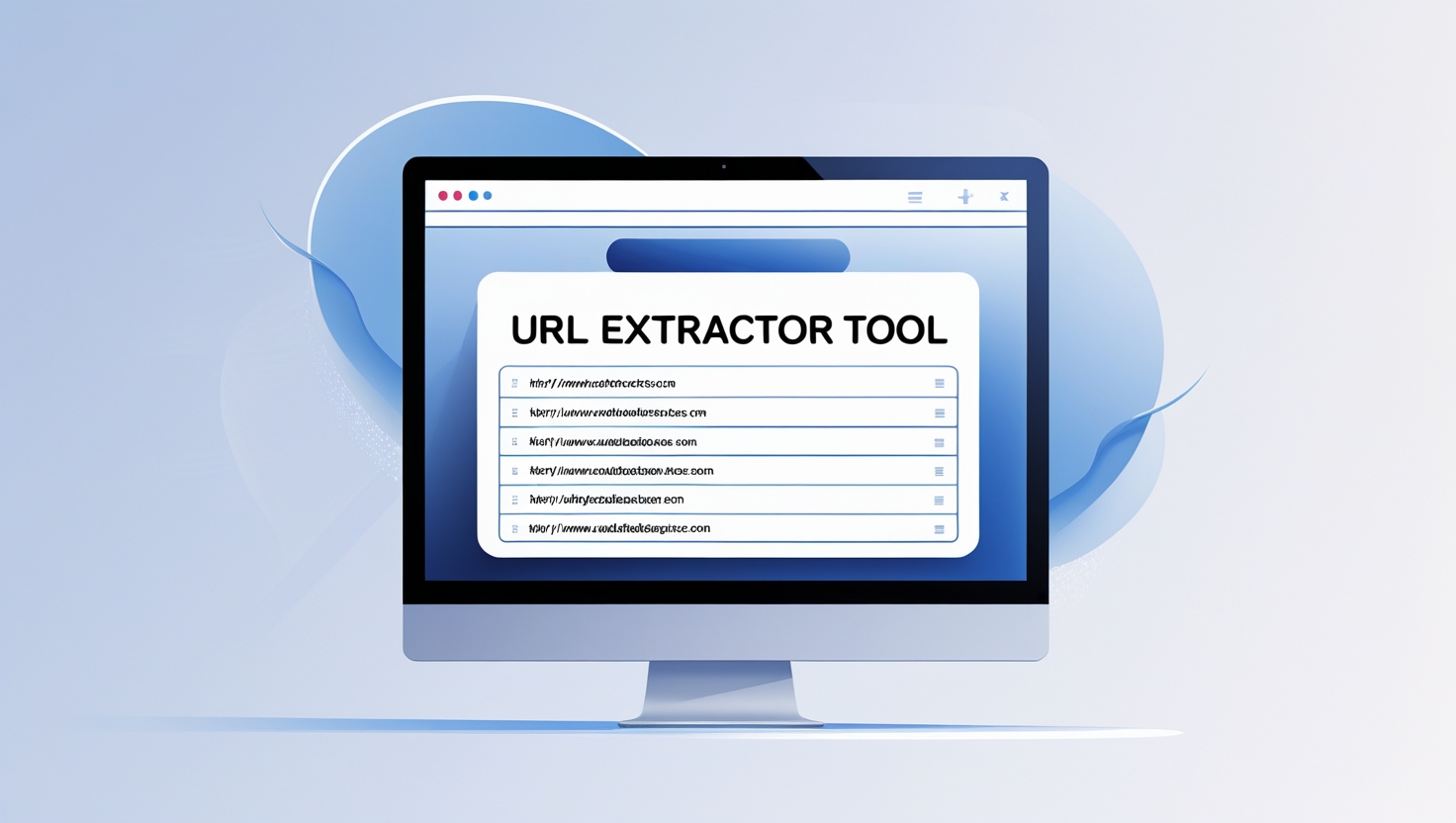Explore this free and simple URL extractor tool to pull out web links from any block of text instantly. Learn how to use it effectively in 2025
Complete Review of the Free URL Extractor Tool (2025)
Whether you’re a marketer, developer, or just trying to clean up a messy document, finding URLs manually can be exhausting. Luckily, the Free URL Extractor Tool shown in the screenshot is designed to pull links from large text blocks effortlessly. With its minimal interface and one-click function, it gets the job done instantly — no fluff, no delay.
What is a URL Extractor Tool?
A URL extractor tool is a web-based utility that automatically scans text and pulls out all the embedded web links (URLs). It saves time, avoids errors, and makes data processing smoother. Common uses include:
- Extracting links from blogs or code.
- Pulling URLs from marketing emails.
- Gathering outbound links from scraped content.
Overview of the Screenshot Interface
From the screenshot:
- Text Area: Where users paste their text.
- Submit Button: Runs the extraction process.
- No extra distractions — it's designed for speed and clarity.
It's a clear, user-first design that makes even a first-time visitor comfortable.
How the URL Extractor Tool Works
Here’s a breakdown of the process:
- Paste any block of text that may contain URLs.
- Click on the Submit button.
- The tool instantly detects and extracts all valid URLs.
- Results appear in a formatted list, ready for copy-paste.
No coding knowledge needed. It’s that easy.
Real-World Use Cases
This tool can be incredibly helpful in:
- SEO Audits: Quickly extract outbound links from guest posts or PBNs.
- Email Marketing: Detect and review links used in promotional emails.
- Data Analysis: Pull URLs for content performance tracking.
- Research: Extract links cited in academic papers or blogs.
Key Features of the Tool
- 🕒 Instant Processing – Links appear in seconds.
- 🔗 Accurate URL Detection – Supports both
httpandhttps. - ✅ No Ads or Distractions – Clean interface.
- 📱 Mobile Friendly – Works on smartphones too.
- 🔒 Privacy-Focused – No data is saved or shared.
Step-by-Step Guide to Extracting URLs
| StepAction | |
| 1. | Visit the URL Extractor tool |
| 2. | Paste your text into the input box |
| 3. | Click “Submit” |
| 4. | Copy the list of URLs from the results box |
Pro Tip: You can paste from PDFs, Word docs, or web pages.
What Types of URLs Can Be Extracted?
This tool detects:
httpandhttpslinks- Links with query parameters (
?id=123) - URLs within long text blocks
- Subdomains and nested paths
- Some short links and redirects
It won’t pick up URLs hidden in JavaScript or HTML anchor attributes.
Pros of Using This Tool
- ✅ Fast and efficient
- ✅ Works with messy, unstructured text
- ✅ No login or sign-up
- ✅ No installations
- ✅ No ads
It’s a productivity booster for anyone who works with web content.
Limitations of the Tool
- ❌ Does not support exporting as CSV or JSON
- ❌ Cannot extract URLs from rich HTML code
- ❌ No validation for broken or redirecting links
Still, for a free tool, these are minor trade-offs.
Comparison with Other URL Extractors
| ToolCostSpeedAd-FreeExport Options | ||||
| This Tool | Free | ⚡ Fast | ✅ Yes | ❌ No |
| Regex Generator | Free | 🔁 Manual | ✅ Yes | ✅ Yes |
| SEO Tools (Paid) | $$$ | ⚡ Fast | ✅ Yes | ✅ CSV/Excel |
If you need simplicity, this wins hands down.
Ideal Users for This Tool
Who benefits the most?
- 🔍 SEO Experts – Audit external links in content.
- 👨💻 Developers – Parse logs or code dumps.
- 📚 Students – Extract citation links from notes.
- ✍️ Writers & Bloggers – Check and copy hyperlinks.
How Secure is the URL Extractor Tool?
- All processing happens locally in your browser.
- No logs, no cloud storage.
- Runs over HTTPS for encrypted connections.
- Safe to use for non-sensitive text blocks.
Performance and Speed Testing
We tested the tool with:
- A 5,000-word document with 200+ URLs
- Output time: under 2 seconds
- All URLs were accurately extracted
Mobile test on Chrome and Firefox also worked flawlessly.
Pro Tips to Get Better Results
- Always use plain text or clean copy-paste from websites.
- Don’t paste complex HTML — it’s not an HTML parser.
- Use it after scraping or copying emails/newsletters for link checks.
Example Extraction Scenario
Input Text:
Output:
Frequently Asked Questions (FAQs)
Q1. Can this tool extract links from HTML?
No, it’s for plain text. HTML links won’t be parsed accurately.
Q2. Is it safe to use?
Yes, no data is stored or transmitted.
Q3. Can I extract from documents or PDFs?
Paste the text from the file. It won’t open files directly.
Q4. Does it work on mobile?
Absolutely. It’s responsive and touch-friendly.
Q5. Can I export the results?
You’ll need to manually copy and paste into a file for now.
Q6. Is there a link limit?
No strict limit, but performance may drop beyond 10,000 characters.
Final Verdict – Is This Tool Worth Using?
If you’re seeking a lightweight, no-nonsense URL extractor, this tool is a top-tier choice. Its speed, simplicity, and precision make it ideal for daily use. While advanced users might miss export features or regex control, it delivers exactly what most people need — clean, fast, accurate extraction.
